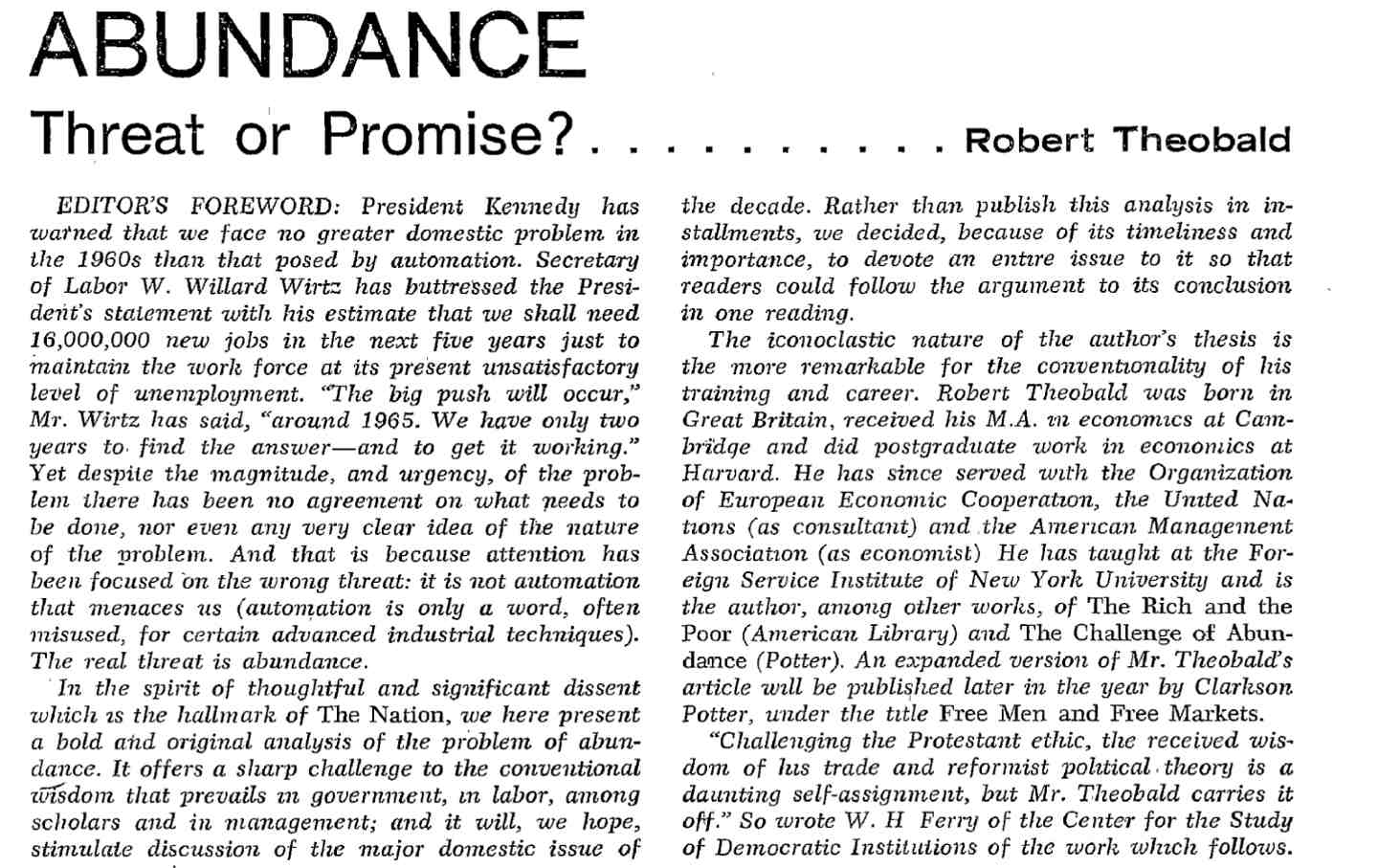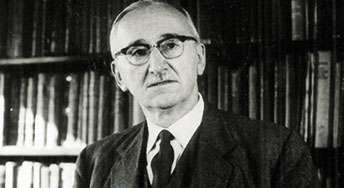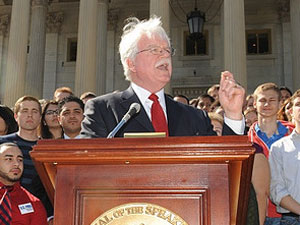
This Week in Poverty: Homeowners Take the Foreclosure Fight to the DOJ This Week in Poverty: Homeowners Take the Foreclosure Fight to the DOJ
When will the feds bring big banks to justice?
May 24, 2013 / Greg Kaufmann

This Week in Poverty: Fighting Poverty Through Wall Street Accountability This Week in Poverty: Fighting Poverty Through Wall Street Accountability
Are big banks the next frontier in the anti-poverty crusade?
May 17, 2013 / Greg Kaufmann

This Week in ‘Nation’ History: Abundance and the Basic Income Guarantee This Week in ‘Nation’ History: Abundance and the Basic Income Guarantee
The economist and futurist Robert Theobald argued in 1963 that technological changes could prove detrimental to American society if not adequately harnessed.
May 11, 2013 / Katrina vanden Heuvel

This Week in Poverty: Twelve Things You Can Do To Fight Poverty Now This Week in Poverty: Twelve Things You Can Do To Fight Poverty Now
It’s a tough moment in the fight against poverty, but twelve anti-poverty leaders have suggestions of what you can do right now to take action.
May 10, 2013 / Greg Kaufmann

Fast Food Strike Wave Spreads to Detroit Fast Food Strike Wave Spreads to Detroit
The non-union fast food walkout follows similar actions in New York, Chicago and St. Louis.
May 10, 2013 / Josh Eidelson

The Price: Sex, Death and Dhaka The Price: Sex, Death and Dhaka
Someone somewhere must die for the pleasure someone somewhere else takes in a $4.95 bikini top.
May 8, 2013 / JoAnn Wypijewski

Nietzsche’s Marginal Children: On Friedrich Hayek Nietzsche’s Marginal Children: On Friedrich Hayek
How did the conservative ideas of Friedrich Hayek and the Austrian school become our economic reality? By turning the market into the realm of great politics and morals.
May 7, 2013 / Books & the Arts / Corey Robin

With Bangladesh Toll Over 700, ‘Which Brands Accept Blood on Their Labels?’ With Bangladesh Toll Over 700, ‘Which Brands Accept Blood on Their Labels?’
A senior member of Congress pushes retailers and brands to make “the moral choice” to address condition that produce predictable tragedy.
May 6, 2013 / John Nichols

This Week in Poverty: Florida Gives Workers a Smackdown This Week in Poverty: Florida Gives Workers a Smackdown
The Florida state legislature takes action to bar local, pro-worker ordinances on living wages, paid sick leave and equal employee benefits.
May 3, 2013 / Greg Kaufmann

John Nichols: Time for the Austerity Hawks to Check Their Math John Nichols: Time for the Austerity Hawks to Check Their Math
Recent findings from Amherst College deal a major blow to austerity-friendly calculations—which the mathemeticians themselves acknowledge.
May 2, 2013 / Press Room
